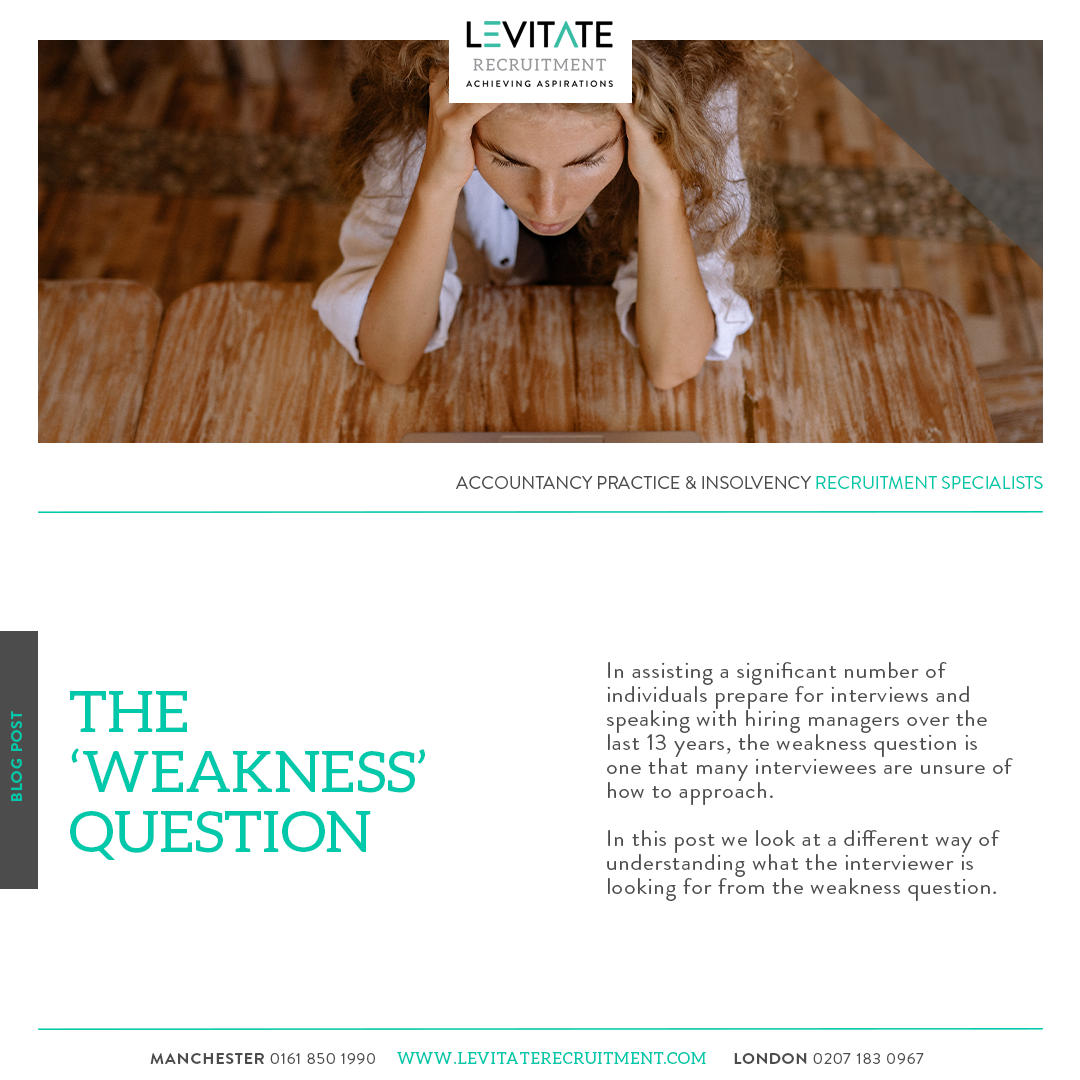I recently read a post that said the weakness question in an interview is not relevant. The premise of the article was that it is a pointless question and that it is none of the interviewer’s business to ask about someone’s weaknesses. The article even suggested that if you get asked this question in an interview you would be well within your rights to walk out of the meeting at that point.
In assisting a significant number of individuals preparing for interviews and speaking with hiring managers over the last 10 years, the weakness question is one that many interviewees are unsure of how to approach.
I believe that it is a blinkered view that the question is irrelevant, as it can be one of the most important questions you can answer.
What is the weakness question?
The weakness question, like “what are your strengths?” is an awareness-based question. If you can identify where your abilities are strong, equally you should be able to identify where they are not an awareness-based question.
Why do interviewers ask it?
Admittedly, there are interviewers that do ask the question just because they see it as a standard interview question.
However, the more astute interviewers ask it because they want to see how someone handles/answers being challenged on a weakness. They are not so much interested in the actual weakness itself but whether the individual is aware of their weakness and what they do/have done about it.
If you are aware of your weaknesses, what are you doing about improving it?
How someone answers this allows the interviewer to assess how the individual will handle criticism/feedback in the role. Those that have identified their weakness and don’t do anything to improve it or make excuses for it demonstrate a different mentality to those that have actively sought to improve their weakness.
Think about it another way
I have assisted hundreds of candidates over the years in preparing for interviews, and once we get to the weakness question circa 90% are unsure as to what they should say. Where they have had an answer almost immediately to all the other questions we have covered, they suddenly start to second guess what they should say.
Over the last couple of years, I’ve changed the way I ask the question from using the word weakness to asking if they have any areas or attributes they could improve.
It seems that people don’t like the word weakness and feel it is a personal attack on them. I noticed a significant difference when I changed the way I asked the question.
If we rank our strengths out of 10, you may rate them at 7, 8 or 9. So if we rank the areas that we need to improve, they may be anywhere from 1-6.
A weakness/area of improvement is never completely solved, all we can do is improve it and it is this that a potential new employer is looking for.
How to answer the question
Choose a weakness where you can demonstrate an improvement.
- Explain what your weakness is.
- Explain the negative effect it has.
- Explain what you have done to improve it.
- Explain how it has improved.
Tips
- As with all potential interviews tips, be prepared.
- Avoid a weakness that is a requirement for the role.
- Avoid the stereotypical answers i.e. turn a weakness into a strength.
- Avoid funny answers, i.e. Chocolate is your weakness.
I have never known for someone to be offered a job based on their answer to the weakness question. However, I have had a few experiences of instances where the way someone has responded to the question has cost them the opportunity.
My views are based on my 14 years+ of recruiting for Accountancy Practice and Insolvency professionals.
For advice about your career options, speak to Scott Lowes at Levitate Recruitment, specialists in placing practice-trained accountants and insolvency professionals across the UK, and find the right role to suit your ambitions.







